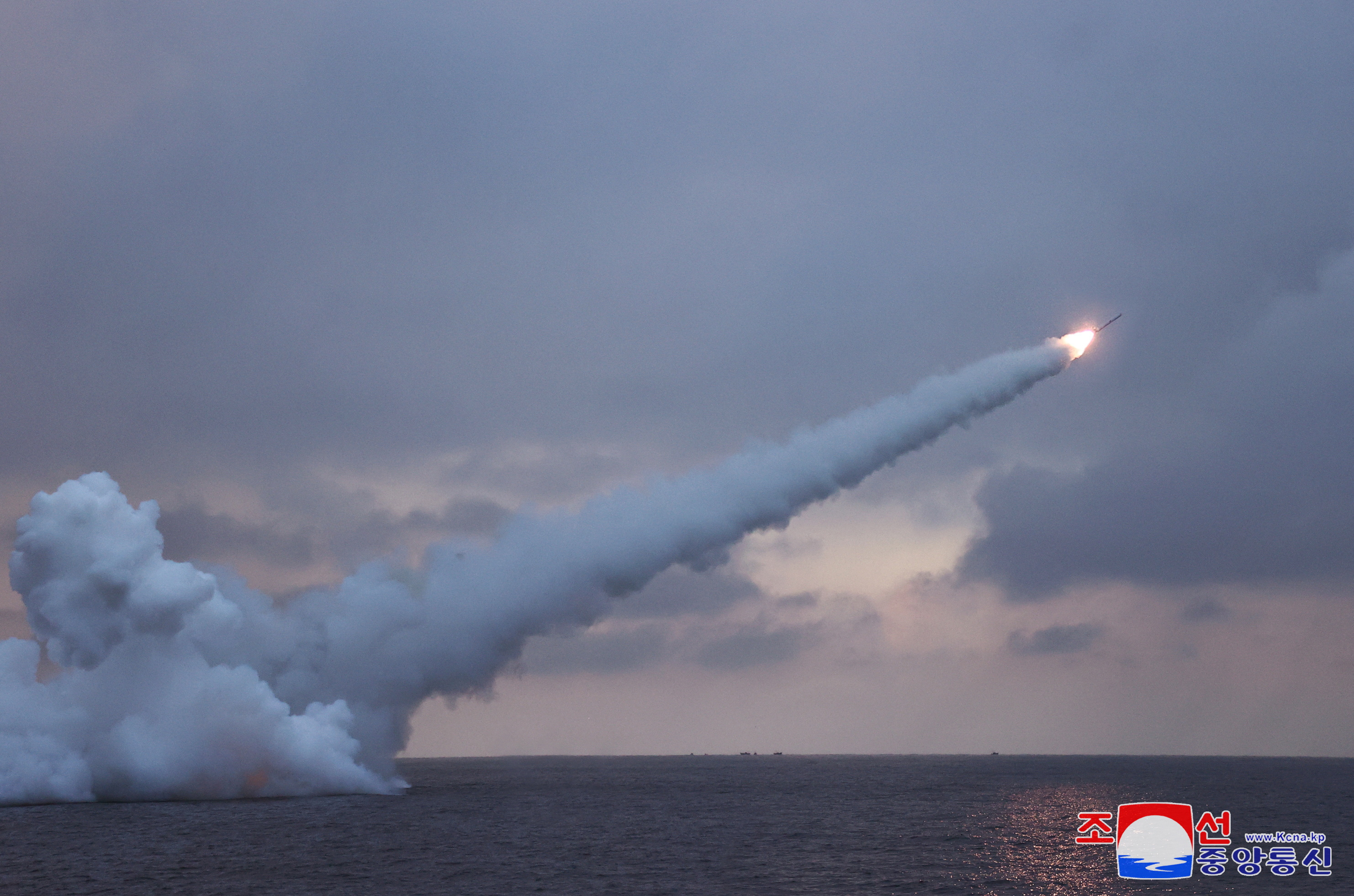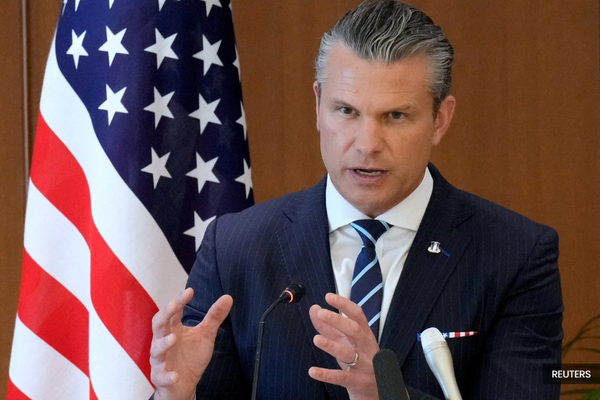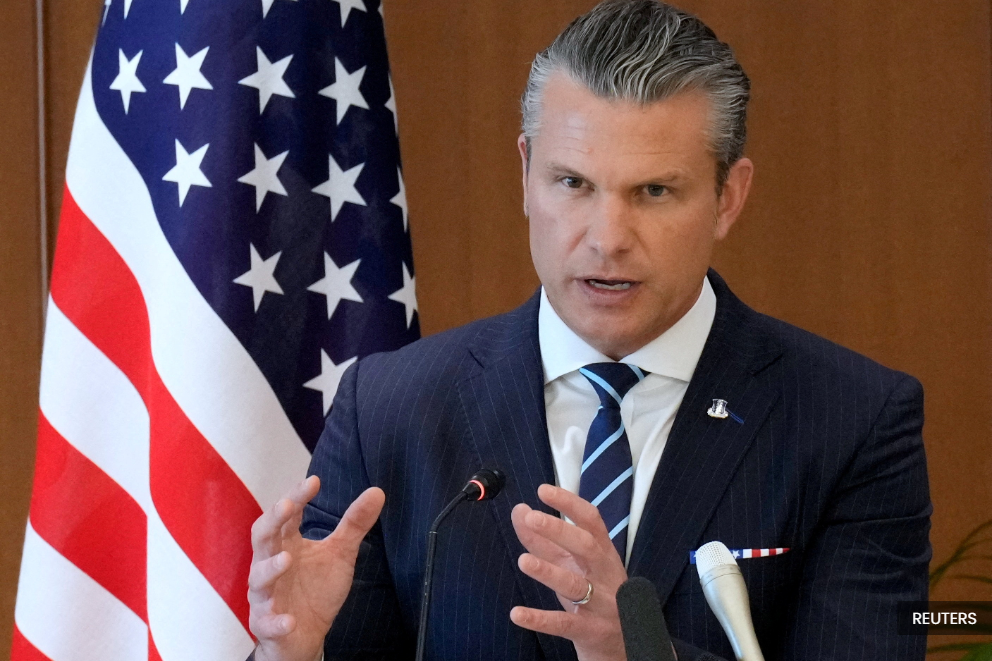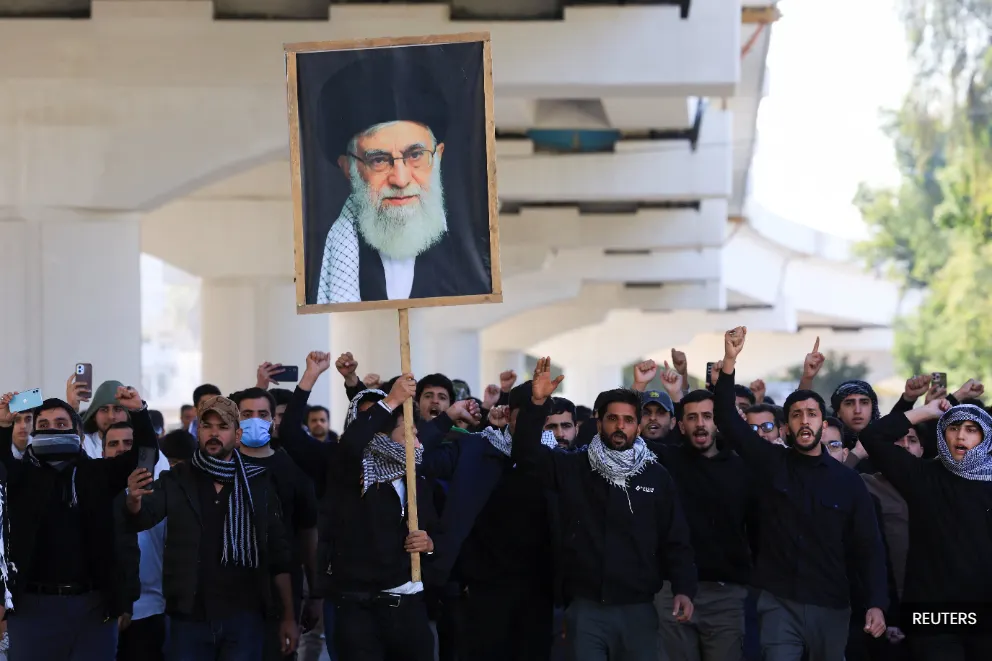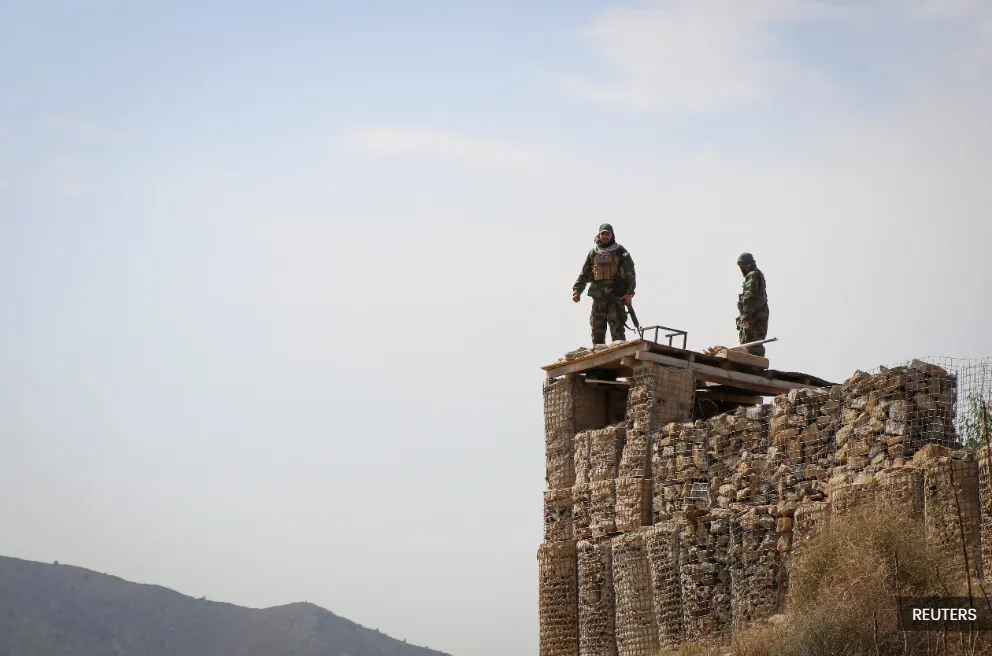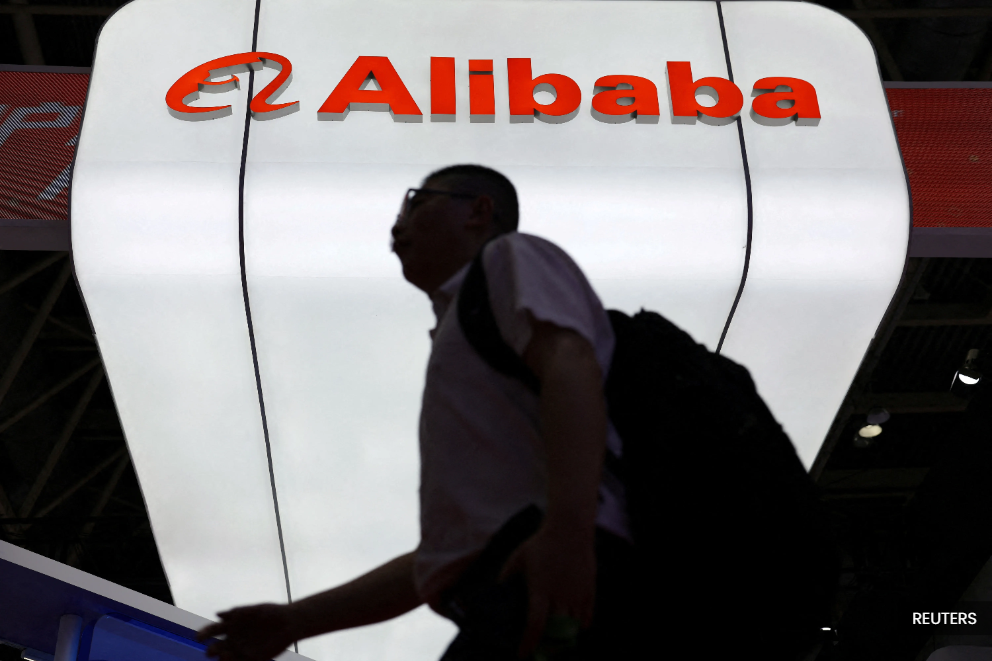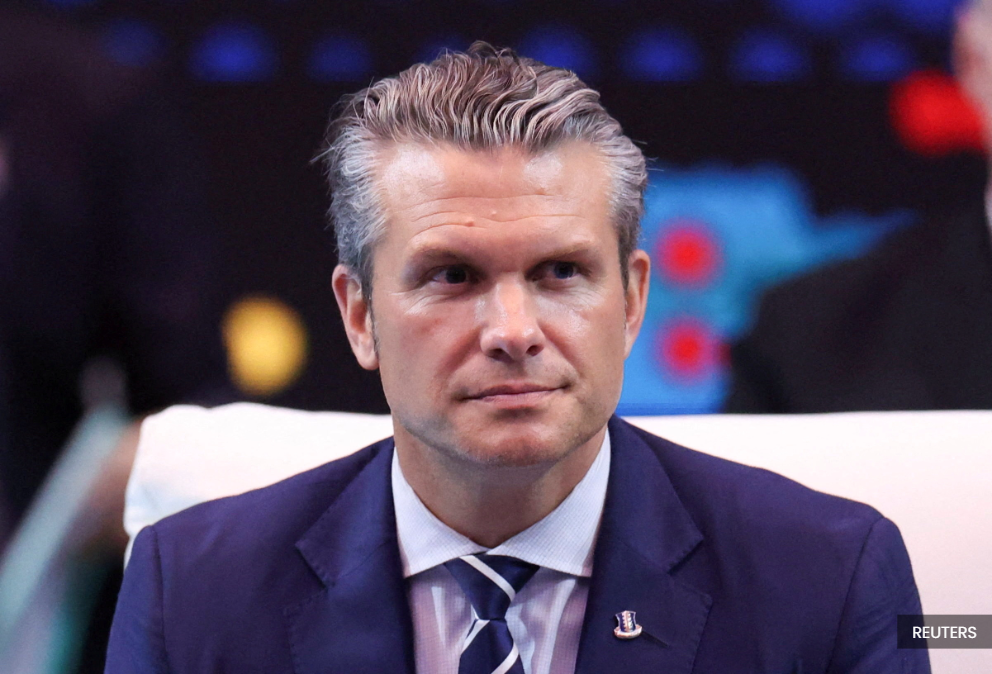SEOUL, Nov 3— United States (US) Defence Secretary Pete Hegseth visits South Korea today for talks expected to focus on Washington's goal of reshaping the role of US troops in Korea, and is also due to visit the Demilitarised Zone (DMZ) border with North Korea.
The defence chiefs are scheduled to hold the annual Security Consultative Meeting tomorrow, the highest-level forum where the two countries chart the course of their military alliance and South Korea's defence against nuclear-armed North Korea.
The South Korean Defence Ministry said that its minister Ahn Gyu-back and Hegseth will discuss combined defence readiness against North Korea and cooperation on regional security, cyber defence, and missile defence.
The two are expected to discuss plans to respond to the "changing security environment and threats" by developing the alliance between the two countries.
Washington is considering making the role of the 28,500 US troops in South Korea more flexible, with an eye on maintaining the balance of power in Asia amid concerns about Chinese activities in the South China Sea and around Taiwan.
US officials have signalled a plan to make US forces more flexible to potentially operate outside the Korean peninsula in response to a broader range of threats, like defending Taiwan and checking China's growing military reach.
South Korea has resisted the idea of shifting the role of US troops but has worked to build its defence capabilities over the past 20 years, aiming to assume wartime command of the combined US-South Korean forces. South Korea has 450,000 troops.
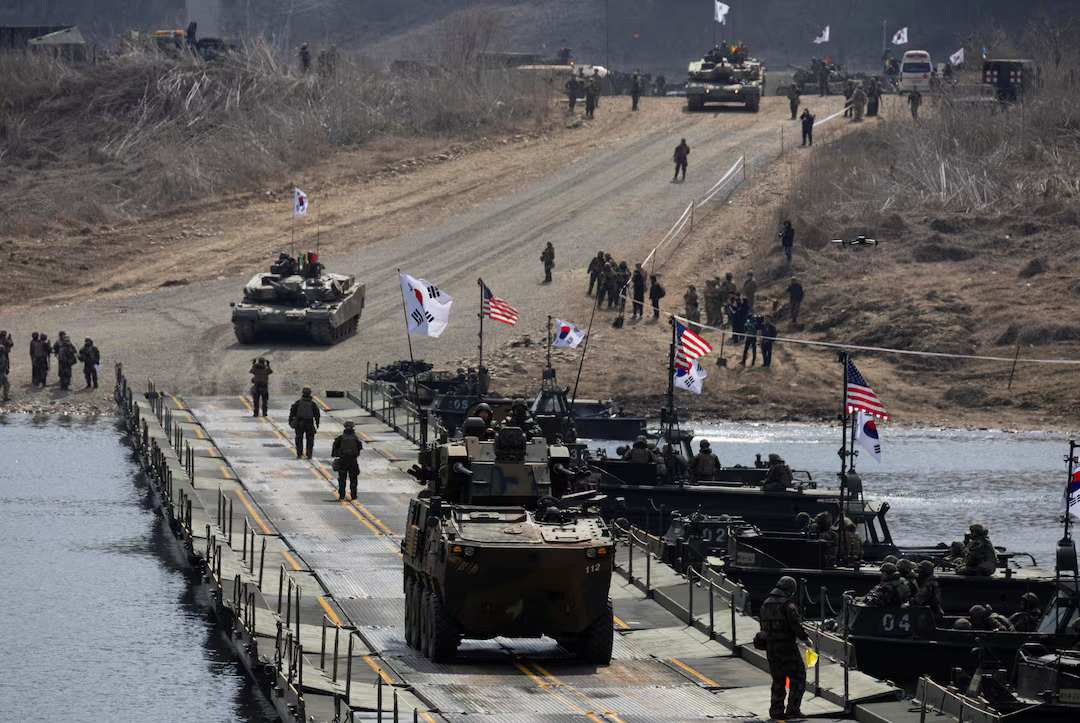
South Korea to increase defence budget
South Korea plans the largest defence budget increase in years in 2026, partly to address US President Donald Trump's demand that Washington's allies pay more for the US military presence in their countries.
Hegseth is expected to visit the Panmunjom truce village on the DMZ border with North Korea, accompanied by Ahn.
Earlier today, the top military officials of the two countries held their annual meeting on strategic and operational directions for the combined forces, and shared the view that the regional security environment is "complex and unstable."
The two chairmen of the Joint Chiefs of Staff pledged to cooperate with other allies and partners to maintain the security of the Indo-Pacific and deter potential threats.
Nuclear-armed North Korea has ignored overtures from Trump and South Korean President Lee Jae Myung for dialogue and has dramatically advanced its missile and conventional military capabilities.
